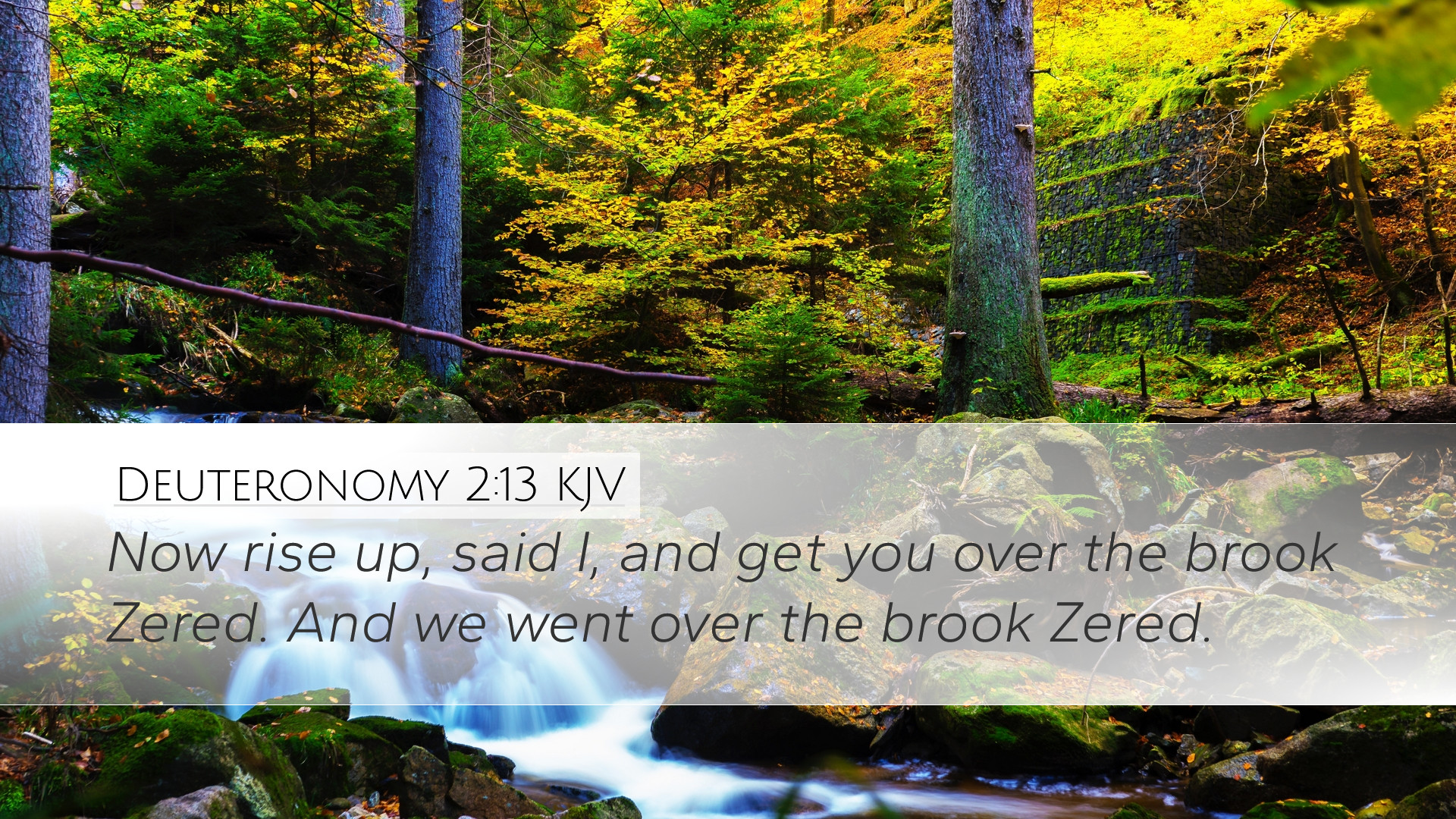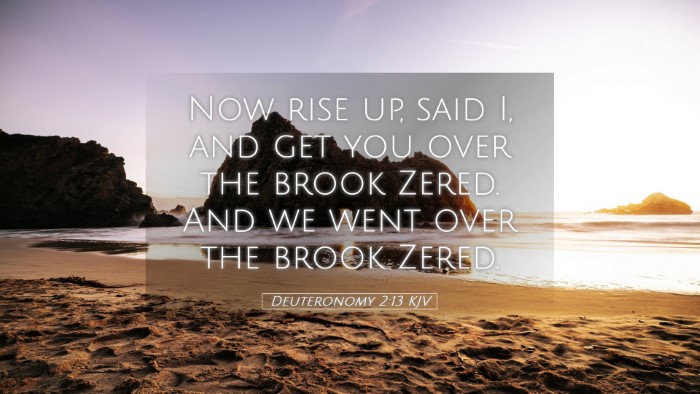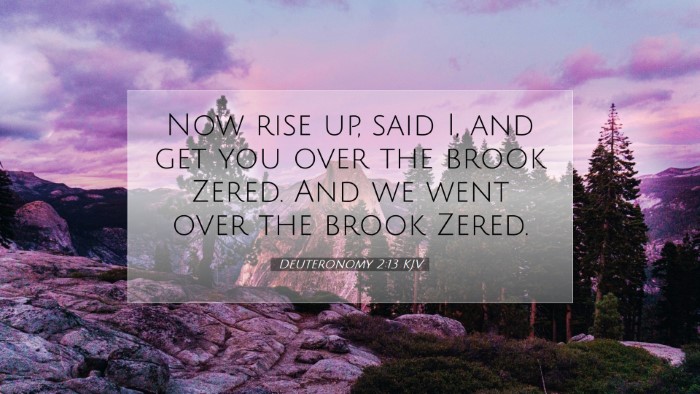Commentary on Deuteronomy 2:13
In examining Deuteronomy 2:13, we encounter a crucial moment in the narrative of the Israelites during their wilderness wanderings. The verse states:
"Now rise up, said I, and get you over the brook Zered. And we went over the brook Zered."
Contextual Background
Deuteronomy, as a reiteration of the Law, serves not only as historical narrative but also as a reminder of God's guidance and commandments. The context of this passage highlights the Israelites' prolonged journey toward the Promised Land and underscores the transitions and decrees from God that shape their experience.
Commentary Insights
This verse marks a pivotal moment where the Israelites are commanded to advance after a period of mourning. The following insights drawn from notable public domain commentaries elucidate the significance of this passage:
Matthew Henry's Commentary
Henry emphasizes the importance of obedience and the principle of moving forward in faith. Here are key points from his observations:
- Divine Command: The command to "rise up" signifies an imperative to act decisively in fulfilling God’s purpose.
- Symbolic Journey: Crossing the brook Zered can be interpreted as a metaphor for spiritual progress; it represents leaving behind what hinders one’s relationship with God.
- Duration of Wandering: The referencing of a specific timeframe (the thirty-eight years of wandering) reminds the people of their past failures but also of God’s faithfulness in leading them out of despair.
Albert Barnes' Notes on the Bible
Barnes provides a detailed analysis that sharpens our understanding of God's providence in this passage. His commentary expands on the following ideas:
- Covenantal Continuity: The command to cross signifies a continuation of God's covenant promise to the Israelites. They are to recognize that God is preparing them to enter a new phase of their journey.
- Geographical Significance: The brook Zered marks a geographical as well as a metaphorical boundary. The act of crossing it suggests a transition from a state of punishment into a state of preparation for conquest.
- God's Patience: God’s patience is evident in that He allows the Israelites time for reflection, yet His ultimate purpose remains focused on progress toward the Promised Land.
Adam Clarke's Commentary
Clarke's insights delve into the spiritual and historical context of the passage, emphasizing several themes:
- The Call to Action: The phrase "rise up" serves as an exhortation to the people. Clarke notes it is a call not just to physical movement but spiritual awakening as well.
- Spiritual Implications: Clarke draws parallels between the brook Zered and the various challenges believers face, suggesting that overcoming these obstacles strengthens faith and reliance on God.
- Reflection on Past Mistakes: He indicates that crossing the brook Zered was also an opportunity for the Israelites to leave behind their failures and to desire the fulfillment of God’s promises.
Theological Themes
Integrating these commentaries highlights several theological themes:
- God's Guidance: The continuity of divine guidance through challenges emphasizes that God is actively involved in directing His people toward their destiny.
- Obedience and Sacrifice: The act of crossing signifies obedience, requiring a willingness to sacrifice comfort for the sake of fulfilling God’s plan.
- Transition and Transformation: There is a clear motif of spiritual and communal transformation as the people are invited to leave their past behind and move forward in faith.
Conclusion
The verse Deuteronomy 2:13 stands as a powerful reminder of obedience, transition, and the faithful leadership of God. As Bible scholars, pastors, and students reflect on this text, the call to “rise up” resonates not only within the historical context of the Israelites but also speaks profoundly to contemporary faith journeys. Just as the Israelites were challenged to cross the brook Zered, believers today are called to continual movement towards God's promises, leaving behind obstacles and embracing the future with hope and determination.


